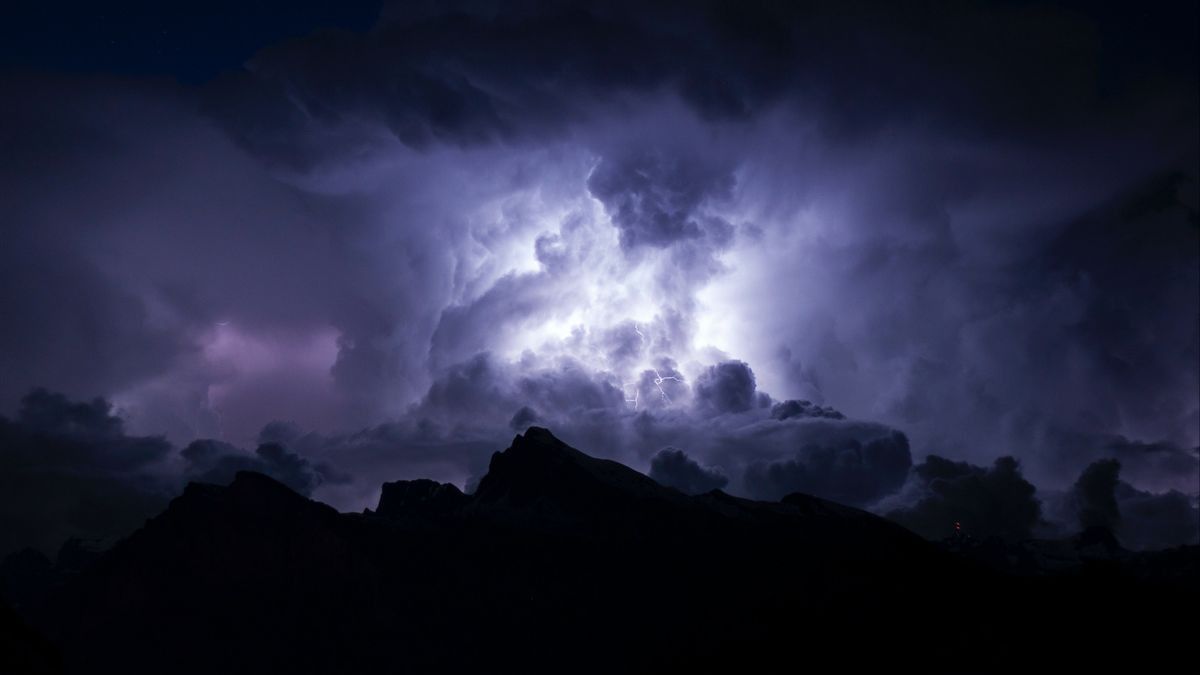JAKARTA - The sound of loud banging occurred in a number of regions in Indonesia. The source of some of the booms was identified. However, others are still a mystery to this day.
Early 2020, loud thuds could be heard in several areas in Jakarta. Many suspect that the explosion came from the sound of the eruption of Mount Anak Krakatau.
However, this was later denied by the National Aeronautics and Space Agency (LAPAN) and said that the booms heard in the Greater Jakarta area did not come from an eruption of Mount Anak Krakatau.
I'm in Turen, Malang. Has anyone heard the sound of a thump repeatedly?
- Dzawin Atlit E-Sport (@Dzawinur) February 2, 2021
A few months later, the sound of a thump again shocked netizens on Twitter. A number of posts claimed to have heard a sound like a loud bang throughout Central Java, on May 11 last year.
Hashtags or hashtags #Dentuman are also lined up on Twitter's trending topic. This is because many netizens are of the opinion that the sound of this boom is similar to what happened to Jabodetabek residents in April.
11/04 jabodetabek boom 11/05 Central Java boom Central Java house but can't hear # banging pic.twitter.com/gxBq3Ms9le
- Laranjo Rosess (Anindyati30) May 11, 2020
At the end of 2020, residents of Jontona Village, East Nusa Tenggara also heard loud banging sounds. The Center for Volcanology and Geological Disaster Mitigation (PVMBG) stated that the sound of the boom came from the eruption of Mount Ili Lewotolok Volcano in Lembata Regency on Wednesday, December 2.
Regarding the phenomenon of this thumping sound, VOI asked the Head of LAPAN Thomas Djamaluddin. He considered the rise of viral boom sounds due to the influence of social media (Medsos). This is because reports of crashing sounds are often unclear, and even when they occur they are not always continuous.
"We have not yet received other related supporting data, such as testimony from residents seeing sky objects or nearby BMKG seismograph data. But because of the influence of social media, it seems as if the explosions are interrelated. It could be that the source is not single and local," said Thomas to VOI.
In fact, there are several things that can be suspected to be the cause of the sound of the thump, from objects falling from the sky to the sonic boom. However, to ensure it, Lapan needs to coordinate with related parties, such as BMKG or TNI.
Although large objects such as meteors or asteroids can be the cause of the crashing sound. Given that in the process, meteors can trigger shock waves to thumping sounds that are even detected by earthquake sensors.
However, most of the asteroids that fall to the Earth's surface (land or sea) will be eroded by the Earth's atmosphere. So that the shape will be smaller than the original size. "If a small meteor cannot be predicted," added Thomas.
SkyquakeCreepy noises heard in Bryan Texas with lightning up in the sky, 2020 is crazy as fuck and it's only may pic.twitter.com/vR2DxxK0oD
- 🧩owais (@GNARLYLUST) May 31, 2020
Launching the Science How Stuff Work page, skyquakes are often touted as a boom coming from the sky, as well as falling meteors. Its voice was similar to that of cannons and other large explosions crashing to the ground.
The sound of thumping can be only once or repeatedly and sounds like a cannon shot, a sonic boom, or a trumpet. Even reported this phenomenon, has been heard for years in various parts of the world.
Skyquake also has various terms according to the country where it occurs, for example in Bangladesh, skyquake is called Barisal guns (Barisal guns). In addition, Italy has several names for skyquakes, namely balza, brontidi, lagoni, and marine. Meanwhile in Japan, the boom was named umimari (crying from the sea).
Scientists believe there are several events that may not be the cause of the skyquake. There is no evidence that the thuds came from an industrial catastrophe due to global warming, shifting tectonic plates, and holes in the ozone layer.
The English, Chinese, Japanese, Arabic, and French versions are automatically generated by the AI. So there may still be inaccuracies in translating, please always see Indonesian as our main language. (system supported by DigitalSiber.id)











